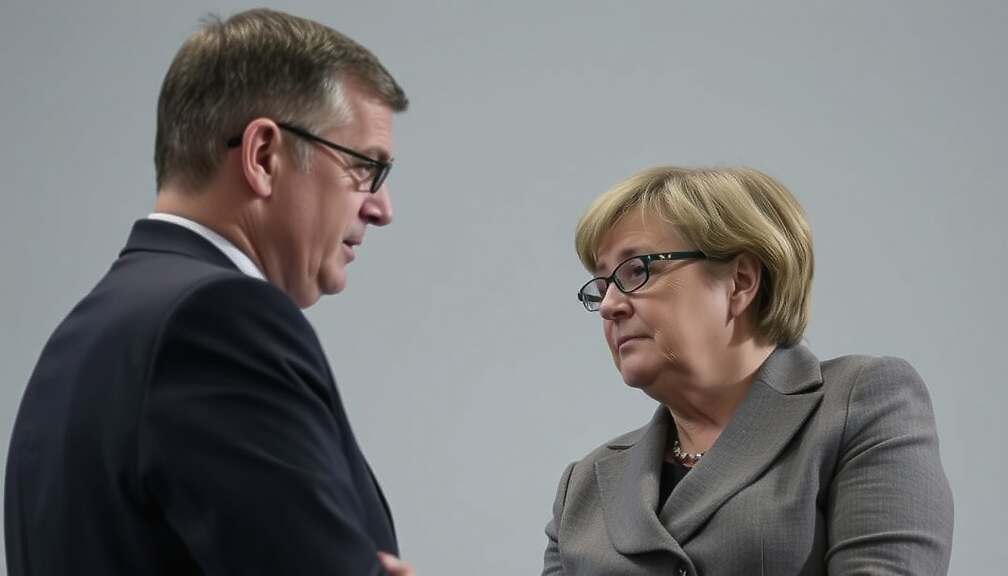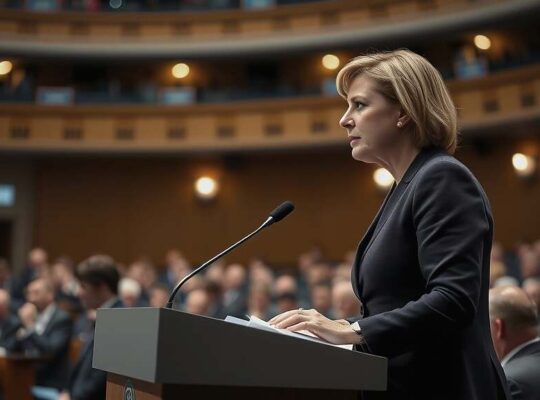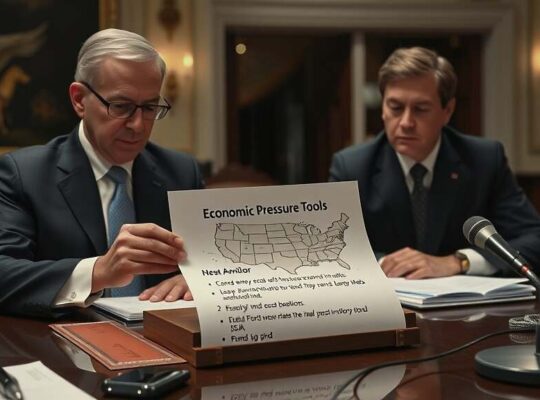Public Trust in German Parties Remains Shifting Amid Economic Concerns
A recent survey by Forsa indicates that the CDU/CSU continues to hold a lead in voter preference, registering at 28 percent. This figure represents a level close to their second-weakest result in a federal election. The AfD remains steady at 24 percent in the weekly poll conducted for RTL and ntv, maintaining a close position behind the CDU/CSU.
The SPD is currently measuring at 14 percent, remaining below its historically lowest election result. The Green Party and the Left Party both stand at 11 percent, while the BSW and FDP are at 3 percent each. Other parties collectively account for 6 percent.
Regarding perceived political competence, the CDU/CSU leads with 28 percent, showing a slight increase (+1). The AfD is seen as competent by 11 percent of respondents, while the SPD registers at 6 percent, unchanged. The Green Party experienced a slight dip, falling to 5 percent and the Left Party also declined to 4 percent (-1). A significant 44 percent of German citizens express a lack of trust in any party’s ability to solve the country’s problems.
Economic sentiment has further deteriorated, with only 24 percent of those surveyed anticipating an improvement in the economic situation, a decrease of 2 percent. Conversely, 50 percent expect a worsening of the economic climate, an increase of 1 percent. The percentage of respondents expecting stable conditions remains unchanged at 24 percent. The overall economic expectation index has declined to -26.
The persistently low approval ratings for the two major parties reflect widespread dissatisfaction with their performance within the federal government. Only 38 percent of citizens are satisfied with the CDU/CSU’s work in government, while 57 percent express dissatisfaction. The SPD fares even worse, with just 30 percent satisfied and 65 percent dissatisfied. Assessments of both parties are particularly critical in East Germany.
Chancellor Friedrich Merz (CDU) currently enjoys a satisfaction rate of 42 percent, with 51 percent of citizens expressing dissatisfaction. His approval is notably high among CDU/CSU supporters (84 percent) and SPD voters (58 percent). Support among Green voters is at 36 percent, Left Party voters at 19 percent and AfD voters at only nine percent.
Vice Chancellor and Finance Minister Lars Klingbeil (SPD) receives even lower satisfaction ratings, with only 31 percent of citizens expressing contentment and 51 percent dissatisfaction. Eighteen percent refrained from giving an opinion. Notably, approval among SPD supporters is a moderate 51 percent. CDU/CSU voters rate Klingbeil’s work positively at 49 percent.
The data for party preferences, perceived political competence, economic expectations and satisfaction with Merz were collected between June 24th and 30th, with a sample size of 2,501 respondents. Satisfaction with Klingbeil and the governing parties was surveyed between June 27th and 30th, involving 1,009 individuals.












